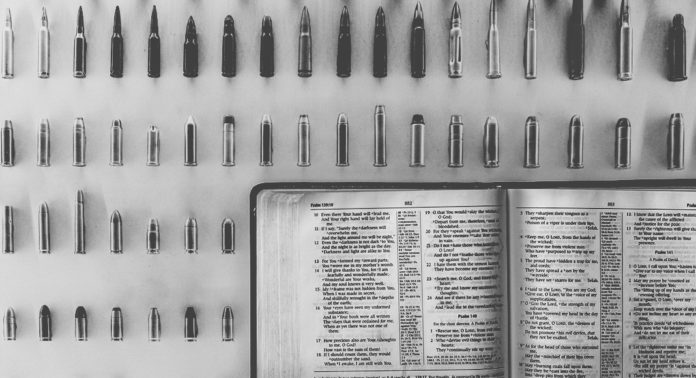Recently we were all heartbroken with the news of yet another shooting in a place that should have been safe. For us in the Dallas-Fort Worth Metroplex, it was close to home. It was not the first time that an attack has been made on a house of worship. It doesn’t seem to be the last, nor are places of worship the only safe places that are targets of attack.
As if on cue, the gun vs. gun control debate flared up again. We have come to expect this vigorous argument as much as we have come to expect the shootings. For one side, the tragedy is yet another example of how we need stricter gun laws. For the other side, the fact that there were armed persons in the sanctuary is evidence that we should allow the citizenry to arm up and protect themselves.
The existence of this debate, however, indicates that there is an unexpected common ground between these two sides. By their arguments, both sides concede that they feel powerless to deal with the deep problems that give rise to these tragedies. The gun control side is convinced that the only way to handle the problem is to use the coercive power of government to remove access to these weapons. The pro-gun side is convinced that the path forward is to give people access to deadly power in order to fight the shooters. Both sides have admitted that these things will happen; who should use power to physically stop them?
What is missing in these arguments is any discussion about the brokenness out of which these disasters emerge. On one hand, avoidance of the underlying issue is understandable if misguided. When there are instances of severe mental illness, we are rightly resistant to speak of it in a way that stigmatizes the many who peacefully and admirably suffer from illness. More uncomfortable, though, is the fact that these tragedies are often not perpetrated by individuals suffering from psychosis. Certainly they are souls twisted with hate, but in many other ways they are as sane as you and me. Lest we think that it is impossible for clinically sane to do these horrific acts without, we need only recall the cold efficient lethality of the Nazi regime and the Soviet purges.
We in the USA should have a national conversation about how we will handle deadly weapons. Christians should join. What do we say? Do we take a side? We would do well to be a third voice that reminds us of the uncomfortable truth: the underlying problem is not the lack of access or the ease of access to weapons. The root of the problem is a spiritual sickness. Humanity has decided to go its own way, to be its own god. Religion and, thus, morality have become a private matters of the heart. As a result, humans are disconnected from God and societies lack a cohesive story of the world that binds them together. Unless absolutely necessary to keep the systems of the populous running, everything that matters most is left to a “do it yourself” approach. The world can tell you what it means to be an American or a computer programmer or even an effective leader, but it cannot tell you what it means to be human, let alone a good one.
In this kind of scenario, we bump along through a carnival of moralities. All that’s left is a quest for power to handle the violent disrupters in our carnival. Each side is convinced their way is better, so they pursue power to impose it. Yet no one stops to ask why the carnival of modern society tends to be a breeding ground for these actions. In matters of sex, gender, God, money, and truth, we have said “to each his/her own.” Then we stand in wonder when someone takes that approach to violence and life. We deny the possibility of order and are baffled at the chaos that ensues.
Christians have a cure for this sickness. We have a story that makes sense of the chaos. However, it is not the story of the power of the state or the individual right to arms. It is the story of the God who has acted in His Son to overthrow the powers of evil. It is the story of the cross and empty tomb where evil was exhausted and a new creation begun. It is a story of healing as the Spirit fills us and moves through us in love. What would happen if Christians waded into this debate by asking a different question: how can we heal the spiritual sickness of our world? We would be perceived as hopelessly naïve by people on both sides, for sure. We should expect it and not be thrown by it. Instead, we should confidently move forward in the Spirit’s power recalling how the gospel of the kingdom has always eventually prevailed. After all, the weapons of our warfare are spiritual.

